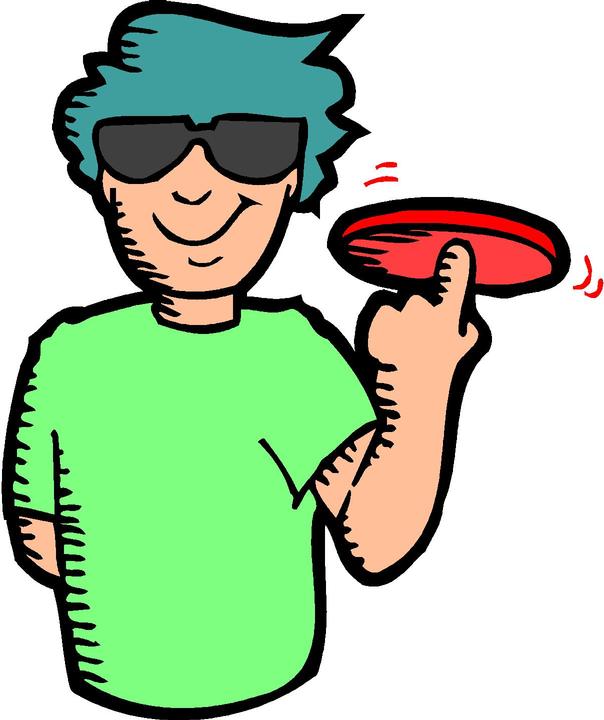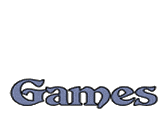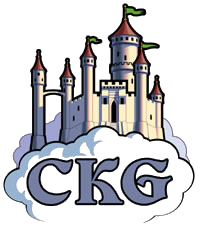
Frisbee Games
- DoHickle - catch with two frisbees
- Toddler Hickle - like DoHickle with annoyances
- Walk before you run - a three or more player game with lots of protocol.
- Seven - useful when going from place to place.
Ads by Google
DoHickle
DoHickle is a two or more player Frisbee™ game,
best played with at least three players.
Object:
To throw a pair of nested Frisbees back and forth, catching both of them each time, getting the highest count possible.
Play: Two players stand a fair distance apart (at least five yards).
One player takes the two Frisbees and nests them together so they can be thrown with one hand.
The Frisbees are then thrown and the other player attempts to catch both of them.
To count a catch,
- The Frisbees must have separated in air.
- Both Frisbees must be caught, normally with two hands but often with one hand and one stomach.
If one Frisbee is caught and the other missed, the count remains the same and the play continues.
If neither Frisbee is caught, then in a three or more player game, the player most at fault is rotated out.
Leonard. In a three or more player game, the on-deck
player is referred to as the "Leonard". The Leonard is the judge
who determines whether a catch counts and, when the Frisbees are missed,
which player was
at fault. Leonards are expected to be fair, arbitrary, capricious and vengeful,
although the fair part rarely enters into the mix. The Leonard decides which
player was at fault when both Frisbees are missed and also determines if
a catch was valid.
This being a cooperative game, the thrower should make the following calls
when the frisbee is thrown:
-
Science! This indicates the frisbees will not be going straight to the
receiver. Often used in windy conditions or when you get a bad angle on
the throw.
-
Cornfield! This indicates the frisbees are going generally straight but
were thrown harder than needed.
- Iowa! This is like a Cornfield call but means the frisbees were thrown MUCH harder than needed and may land in a different city, state or solar system.
Warnings and Penalties:
Excellent play should always be punished. Any time a player makes an amazing catch, does something stylish or
exerts themselves in an attempt, the Leonard should cry out "Acting Warning!".
There is no penalty so this is merely an empty threat.
Extremely clumsy appearing failures, usually when a player manages to miss both Frisbees and
falls down or something, should lead to a "Clown Penalty".
All other players should then run in a circle around the Clown jumping up and down and going "Woo hoo! Woo hoo!".
Nobody wants to get a Clown Penalty.
Note: it is considered polite for the Leonard to comment "seven will get you ten"
when the players reach a count of seven, even if past performance does not guarantee future catches.
ToddlerHickle
This game, curiously enough, didn't develop until a number of us had graduated from
college, gotten married and had kids.
Toddler Hickle is played just like DoHickle except you have a small child on your
shoulders "helping".
Walk Before you Run
This is a Frisbee game that puts Ultimate Frisbee to shame.
Players: Minimum is three, optimum is about five, technically unlimited.
Object: To gain the highest count possible during a "gel".
Play: Players stand in positions at least five yards apart. Starting
position is normally the same position as the ending position in the last game.
One player has the Frisbee. All players need to be standing still.
1. The player with the Frisbee calls out "Gentlemen catch your breath. Walk before you run!". He or she then throws the Frisbee to one of the other players.
2. The player receiving the Frisbee, if they catch it, says "Walking", starts to walk and throws the Frisbee to another player. A certain amount of movement is allowed by the receiver.
3. If a player is already walking and they catch the Frisbee, they say "Relay" and pass it on to another player.
4. The last player who is not yet walking who catches the Frisbee says "Thank You!", starts walking and throws the Frisbee.
5.
Once all players are walking, a player receiving the Frisbee says "Trotting", starts trotting (midway between a walk and a run)
and throws the Frisbee. The Relay rules are the same for Trotting. The last walking player to catch the Frisbee says "Thank you!", starts trotting and passes the Frisbee on.
6.
Once all players are trotting, when you catch a Frisbee you say "Running", start running and pass it on. Relay rules are the same.
However, the last trotting player to catch the Frisbee and start running says "Gel!".
7.
Once all players are running, you begin to count. The first player after the Gel to catch the
Frisbee calls out "One". The next catch is "Two", etc.
Note: Calls such as "Science!" and "Corn Field", similar to those made when playing DoHickle, are encouraged.
Note: "Gentlemen" is non-gender specific and doesn't actually require that the
players be "gentlemen". The reference is from Shakespeare's "Two Gentlemen of Verona" in the scene
where Launce throws a frisbee to his dog Crab and the dog becomes trapped in gelata.
Fouls and penalties:
- A very common mistake is for the last player to start walking, trotting or running to say "Walking", "Trotting" or "Running" instead of "Thank You", "Thank You" or "Gel!". This is a protocol violation. Play stops and all players should wisely comment: "No blame, no Gel!" while casting disparaging glances at the blameless individual who made the error.
- Other bad calls, such as saying "Trotting" instead of "Relay" when you're walking but some player hasn't started walking yet, is the same. Comment sagely and restart the game.
- If the Frisbee should happen to touch the ground and Gel! has not yet been called then all should mutter dispiritedly about "No blame, no Gel!" and once again restart.
-
After a valid Gel! call, however, if the Frisbee should happen to touch the ground there are two arms of blame to be assigned.
- A player who is entirely at fault for the Frisbee hitting the ground should hold up both arms and take two arms of blame.
- If two players are at fault, for example a weak throw and a poor attempt at catching, both players should hold up one arm of blame.
-
Quibbling being essential to any good game, players may also attempt from time to time to take half an arm of blame. For example, the intended receiver could say: "If my arms were only twenty feet long I could have caught that, so I'll take a half arm of blame if you take an arm and a half".
- Blame being transient, once the next game starts it should be forgotten.
Note: When referring to field conditions, one
must always speak in the negative. For example, a Walk Before you Run field
that is on a steep hillside with poor footing, bad visibility and strewn
with broken glass, rattlesnakes and land mines is considered to be a "Perfect
field".
A wide open, flat, grassy park is considered to be "Unplayable".
A severe thunderstorm would be considered "Ideal
weather" while a warm and sunny day is considered to be the "horrible
weather ".
Note: if you have too many players, you may wish to play with only four or five. In this case, the next player on-deck should be considered the Leonard. The Leonard assigns blame and may also call out Acting Warnings and Clown Penalties. When blame occurs after the Gel, the Leonard takes the position of the player with the most blame.
Seven
Object: to accurately throw a frisbee on a sidewalk.
Play: The Seven game
is great for when you're going from place to place on a sidewalk, although
for
the
best
competition,
you
choose
a park
or other
controlled
area.
Each player starts off in a sidewalk square. The frisbee is thrown forward
trying to get it into another square as far away as possible. You can make
the throw from any point in the square, as long as your feet are entirely
within the square.
For each square of distance, you get one point - EXCEPT, if you happen to
throw it exactly seven squares you get zero points. Distance is always counted
in the intuitive way; walk on the sidewalk counting squares taking the shortest
path.
If the frisbee is at least 50% in a square, that square is counted. If the frisbee is 50% or more NOT
on a sidewalk square, then it's worth zero points and you return to the square from which you threw it.
Whoever has the highest total score at the end of the round wins.
Variant: if you're in a hurry to get someplace, if the frisbee
goes off the sidewalk, just start on the closest sidewalk square, counting
zero points for the throw.



